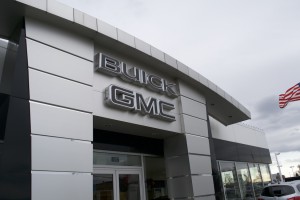As they have through the first half of the year, new vehicle sales are expected to remain level during July as the auto industry edges into the second half of the year with carmakers predicting a drop in profits during the last six months of 2018.
Cox Automotive said this week it expects U.S. new-vehicle sales in July to reach 1.41 million units, mostly unchanged when compared with year-ago levels thanks to what it described as pull-ahead buying by consumers concerned about future price hikes.
However, with one less selling day this year, the seasonally adjusted annual rate (SAAR) for July would be 17.1 million, an increase from the 16.7 million sales rate posted in July 2017.
“The U.S vehicle market remains strong and all the talk of higher interest rates and trade tariffs are not chasing away buyers,” said Charles Chesbrough, senior economist at Cox Automotive. “In fact, the threat of higher prices on the horizon may be driving more shoppers to the showrooms now.”
(Audi rolls out all-new 2019 Q3. Click Here for the story.)

Many buyers in July were looking to get vehicles ahead of anticipated price increases due to tariffs.
A July sales pace of 17.1 million would be down from last month’s pace of 17.4 million. The modest month-over-month decline may be an early sign of a change in the market. Sales in the first half of 2018 were stronger than initially estimated and stronger than the first half of 2017. Cox Automotive continues to forecast the market to slow modestly in the second half of the year.
“Buying conditions will not be getting better in the second half,” added Chesbrough.
“Gasoline prices remain elevated, higher interest rates are having an impact on household budgets, and consumer confidence, while still very high, is lower than it was earlier this year. Further, auto manufacturers are demonstrating some pricing discipline as dealer inventories are at a manageable level.”
Cox Automotive’s full-year sales forecast for 2018 is 16.8 million, down slightly from 2017’s 17.1 million.
(Click Here to see more about Trump, EU eliminating tariffs.)
Earlier this week, after what one analyst described as the worst quarter for Detroit’s automakers since the Great Recession, General Motors Co., Fiat Chrysler Automobiles N.V. and Ford Motor Co. all lowered their earnings guidance because of what Mary Barra described as headwinds.
GM CEO Mary Barra said GM was trimming its guidance to earnings of $6 per share from $6.50.
Ford said it expects to rack up $11 billion in charges during the next three to five years, as it exits businesses beyond North American sedans. A stale product line-up in Asia and costs to comply with tougher emissions rules in Europe contributed to both regions swinging to losses in the second quarter.
“The team is making the hard decisions to raise the returns of underperforming assets where we can,” Chief Financial Officer Bob Shanks said in a statement. “We will disposition the rest. This type of profound redesign will take time, and we will communicate as decisions are made.”
(To see more about the auto industry uniting to challenge Trump tariffs, Click Here.)
Ford now expects adjusted earnings will drop to as low as $1.30 a share, from an earlier projection for as much as $1.70. The Dearborn, Michigan-based company’s Asia Pacific and Europe operations lost a combined $467 million in the second quarter. A year earlier, the automaker was profitable in both regions.


